Related Research Articles
American English, sometimes called United States English or U.S. English, is the set of varieties of the English language native to the United States. English is the most widely spoken language in the United States and in most circumstances is the de facto common language used in government, education, and commerce. Currently, American English is the most influential form of English worldwide.

British English (BrE) is the standard dialect of the English language as spoken and written in the United Kingdom. Variations exist in formal, written English in the United Kingdom. For example, the adjective wee is almost exclusively used in parts of Scotland, North East England, Ireland, and occasionally Yorkshire, whereas the adjective little is predominant elsewhere. Nevertheless, there is a meaningful degree of uniformity in written English within the United Kingdom and this could be described by the term British English. The forms of spoken English, however, vary considerably more than in most other areas of the world where English is spoken and so a uniform concept of British English is more difficult to apply to the spoken language. According to Tom McArthur in the Oxford Guide to World English, British English shares "all the ambiguities and tensions in the word 'British' and as a result can be used and interpreted in two ways, more broadly or more narrowly, within a range of blurring and ambiguity".

The Slavic languages, also known as the Slavonic languages, are Indo-European languages spoken primarily by the Slavic peoples or their descendants. They are thought to descend from a proto-language called Proto-Slavic, spoken during the Early Middle Ages, which in turn is thought to have descended from the earlier Proto-Balto-Slavic language, linking the Slavic languages to the Baltic languages in a Balto-Slavic group within the Indo-European family.
Spoken English shows great variation across regions where it is the predominant language. For example, the UK has the largest variation of accents of any country, meaning that there is no single ‘British accent’. This article provides an overview of the numerous identifiable variations in pronunciation; such distinctions usually derive from the phonetic inventory of local dialects, as well as from broader differences in the Standard English of different primary-speaking populations.

The Pequot are a Native American people of Connecticut. The modern Pequot are members of the federally recognized Mashantucket Pequot Tribe, four other state-recognized groups in Connecticut including the Eastern Pequot Tribal Nation, or the Brothertown Indians of Wisconsin. They historically spoke Pequot, a dialect of the Mohegan-Pequot language, which became extinct by the early 20th century. Some tribal members are undertaking revival efforts.

The Illinois Confederation, also referred to as the Illiniwek or Illini, were made up of 12 to 13 tribes who lived in the Mississippi River Valley. Eventually member tribes occupied an area reaching from Lake Michicigao (Michigan) to Iowa, Illinois, Missouri, and Arkansas. The five main tribes were the Cahokia, Kaskaskia, Michigamea, Peoria, and Tamaroa. The name of the confederation was derived from the transliteration by French explorers of iliniwe to Illinois, more in keeping with the sounds of their own language. The tribes are estimated to have had tens of thousands of members, before the advancement of European contact in the 17th century that inhibited their growth and resulted in a marked decline in population.
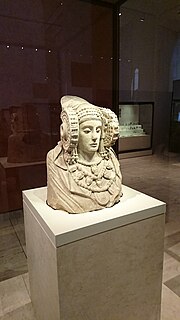
The Iberians were a set of people that Greek and Roman sources identified with that name in the eastern and southern coasts of the Iberian peninsula, at least from the 6th century BC. The Roman sources also use the term Hispani to refer to the Iberians.
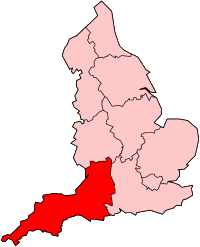
West Country English is a group of English language varieties and accents used by much of the native population of South West England, the area sometimes popularly known as the West Country.
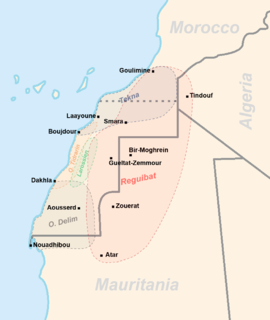
The Sahrawi, or Saharawi people, are the people living in the western part of the Sahara desert which includes Western Sahara, southern Morocco, much of Mauritania and the extreme southwest of Algeria.
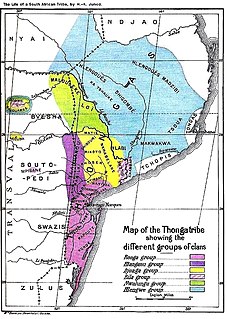
The Tsonga people are a Bantu ethnic group native mainly to Southern Mozambique and South Africa. They speak Xitsonga, a Southern Bantu language. A very small number of Tsonga people are also found in Zimbabwe and Northern Eswatini. The Tsonga people of South Africa share some history with the Tsonga people of Southern Mozambique, and have similar cultural practices; however they differ on the dialects spoken.
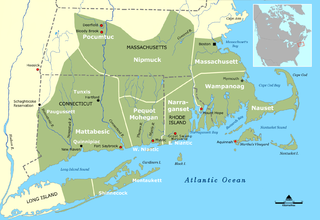
The Massachusett are a Native American people and ethnic group in the United States Commonwealth of Massachusetts, mostly inhabiting their traditional homeland which covers much of present-day Greater Boston. The people take their name from the Algonquian, which is a tribal term meaning “At the Great Hill” – referring to the Blue Hills overlooking Boston Harbor from the south – which was a ceremonial and sacred area for the people of the region.

Mayurbhanj district is one of the 30 districts in Odisha state in eastern India. It is the largest district of Odisha by area. Its headquarters are at Baripada. Other major towns are Rairangpur, Karanjia and Udala. As of 2011, it is the third-most-populous district of Odisha, after Ganjam and Cuttack.

The English language in Northern England has been shaped by the region's history of settlement and migration, and today encompasses a group of related dialects known as Northern England English. Historically, the strongest influence on the varieties of the English language spoken in Northern England was the Northumbrian dialect of Old English, but contact with Old Norse during the Viking Age and with Irish English following the Great Famine have produced new and distinctive styles of speech. Some "Northern" traits can be found further south than others: only conservative Northumbrian dialects retain the pre-Great Vowel Shift pronunciation of words such as town, but all northern accents lack the FOOT–STRUT split, and this trait extends a significant distance into the Midlands.

Grebo people is a term used to refer to an ethnic group or subgroup within the larger Kru group of Africa, a language and cultural ethnicity, and to certain of its constituent elements. Within Liberia members of this group are found primarily in Maryland County and Grand Kru County in the southeastern portion of the country, but also in River Gee County and Sinoe County. The Grebo population in Côte d'Ivoire are known as the Krumen and are found in the southwestern corner of that country.
Older Southern American English was a set of American English dialects of the Southern United States, primarily spoken by white Southerners up until the American Civil War, moving toward a state of decline by the turn of the twentieth century, further accelerated after World War II and again, finally, by the Civil Rights Movement. These dialects have since largely given way, on a larger regional level, to a more unified and younger Southern American English, recognized today by a unique vowel shift and certain other vocabulary and accent characteristics. Some features unique to older Southern U.S. English persist today, like non-rhoticity, though typically in only very localized dialects or speakers.

The Cañari are an indigenous ethnic group traditionally inhabiting the territory of the modern provinces of Azuay and Cañar in Ecuador. They are descended from the independent pre-Columbian tribal confederation of the same name. The historic people are particularly noted for their resistance against the Inca Empire. Eventually conquered by the Inca in the early 16th century shortly before the arrival of the Spanish, the Cañari later allied with the Spanish against the Inca. Today, the population of the Cañari, who include many mestizos, numbers in the thousands.
The English language spoken and written in England encompasses a diverse range of accents and dialects. The dialect forms part of the broader British English, along with other varieties in the United Kingdom. Terms used to refer to the English language spoken and written in England include: English English and Anglo-English.

The Liangmai tribe inhabits Nagaland and Manipur states of Northeast India. Their villages are mostly spread across Peren district in Nagaland and Tamenglong, Senapati in Manipur. There are also few villages in Dimapur, Imphal East and Imphal West districts. The Liangmais are the main inhabitants and dominate in Tening town, sub-division of Peren district of Nagaland state, and Tamei town, sub-division of Tamenglong district of Manipur state.
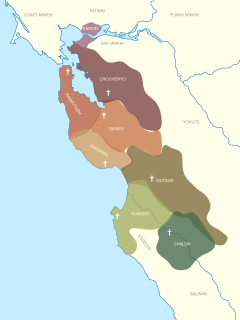
The Ohlone languages, also known as Costanoan, are a small family of indigenous languages spoken by the Ohlone people. The pre-contact distribution of these languages ranged from the southern San Francisco Bay Area to northern Monterey County. Along with the Miwok languages, they are members of the Utian language family. The most recent work suggests that Ohlone, Miwok, and Yokuts are branches of a Yok-Utian language family.
The Miami accent is an evolving American English accent or sociolect spoken in South Florida, particularly in Miami-Dade county, originating from central Miami. The Miami accent is most prevalent in American-born Hispanic youth who live in the Greater Miami area.
References
- ↑ Yipma at Ethnologue (18th ed., 2015)